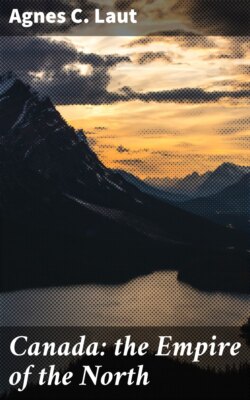Читать книгу Canada: the Empire of the North - Agnes C. Laut - Страница 27
На сайте Литреса книга снята с продажи.
SIR WALTER RALEIGH
ОглавлениеAs storm was gathering, the men begged him to remain on the larger ship, but Gilbert refused to leave the sailors of the Squirrel. The frigate was as safe for him as for them, he said. Some one called his attention to the fact that the frigate was overweighted with cannon. Gilbert laughed all danger to scorn. Soon afterwards the waves began to break short and high—a dangerous sea for a small, overweighted ship. It had been arranged that both ships should swing lanterns fore and aft to keep each other in sight at night. On the night of September 9 a phosphorescent light was seen to gleam above the mainmast of the Squirrel—certain sign to the superstitious sailors of dire disaster; but when the Hinde slackened speed, and the great waves threw the vessels almost together, there was Sir Humphrey sitting aloft, book in hand, shouting out, "We are as near Heaven by sea as by land." The Hinde fell to the rear. The Squirrel led away, her stern lanterns lighting a trail across the shiny dark of the tempestuous billows. Suddenly, at midnight, the guiding light was lost. The Squirrel's stern lanterns were seen to descend the pitching trough of a mountain wave, and when the wall of water fell, no light came up. Down into the abyss the little craft had plunged, never to rise again, carrying explorer, treasure hunters, colonists, to a watery grave.
It may be added that the disaster took place halfway across the ocean, and not off Newfoundland, as the ballad relates.
But for all this misfortune, England did not desist. The very next year Raleigh, who had played on the sands with Humphrey Gilbert, sends out his colonists to the Roanoke, and lays the foundations for the beginning of empire in the Southern States. English sailors explore Cape Cod. Ten years after Frobisher had brought home his cargo of worthless stones from Labrador, Davis, the master mariner, is out exploring the waters west of Greenland; and Henry Hudson, the English pilot who had discovered Hudson River, New York, for the Dutch, is retained by the English in 1610 to explore those waters west of Greenland where both Frobisher and Davis reported open passage.
It is midsummer of 1610 when Hudson enters Hudson Straits. The ice jam of Ungava Bay, Labrador, has almost torn his ships' timbers apart and has set fear shivering like an aspen leaf among the crew. Old Juett, the mate, rages openly at Hudson for venturing such a frail ship on such a sea; but when the ship anchors at the west end of Hudson Straits, five hundred miles from the Atlantic, there opens to view another sea—a sea large as the Mediterranean, that, like the Mediterranean, may lead to another world. It is as dangerous to go back as forward; and forward Hudson sails, southwestward for that sea Drake had cruised off California, the old mate's mutiny rumbling beneath decks like a volcano. South, southwestward, seven hundred miles sails Hudson, past the high rocks and airy cataracts of Richmond Gulf, past silence like the realms of death, on down where Hudson Bay rounds into James Bay and the shallows plainly show this is no way to a western sea, but a blind inlet, bowlder-strewn and muddy as swamps.
